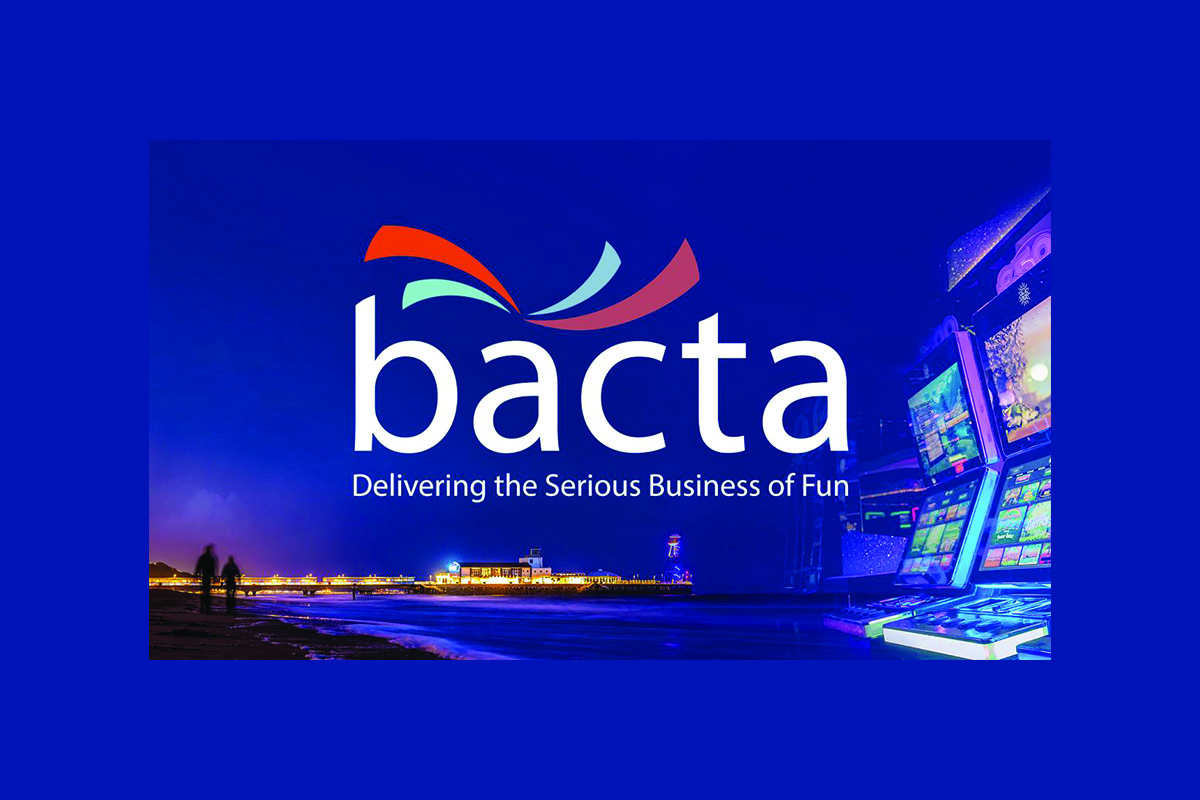UK
MERKUR’s Tony Boulton Praises Bacta Social Responsibility Exchange

Tony Boulton, MERKUR UK’s Director of Public and Political Relations, has praised the 2023 Bacta Social Responsibility Exchange.
Tony Boulton said: “Bacta Chief Executive John White, National President John Bollom, Liz Speed who chairs bacta’s SR Committee and bacta Operations Manager Sarah Dhakshina-Murthy should be congratulated on delivering what was an outstanding and powerful event which succeeded on many different levels.
“As a company that places safer gambling at the heart of the business MERKUR UK had six of our senior venue team present at the Exchange all of whom confirmed that it was one of the most useful SR events that they had participated in.
“The Breakout sessions provided invaluable insights covering the techniques and technologies deployed by operators to minimise the record low percentage of players who experience problems.”
He added: “Whilst there can never be any room for complacency I believe that everyone involved in our sector can reflect on the progress that it has made and continues to make in order to ensure that low stake gambling entertainment is a mainstream leisure activity that’s enjoyed by millions of adults on high streets throughout the country.”
lottery
Regal Signs National Lottery Operator Allwyn to The Clarendon Works Office Development

Regal Workspace, part of Regal, one of the capital’s leading privately owned mixed-use developers, has agreed a pre-letting of 63,527 sq ft – equivalent to 45% of the entire floorspace – to National Lottery operator Allwyn at The Clarendon Works, the best-in-class sustainable workplace in Watford set to open in Q3 2024.
Taking the building to close to 80% pre-let, Allwyn will occupy six floors of the Grade A speculative development in Watford, having chosen to relocate to a more modern building from its existing space on Tolpits Lane in Watford. Allwyn plans to move into its brand-new home by the spring of 2025.
The design-led office space will offer a dynamic and vibrant environment and will provide the perfect home for Allwyn to work towards the company’s overarching ambition to offer more games, attract more players, inject more excitement, create more winners, and raise more money for National Lottery-funded projects.
The new building will also help Allwyn deliver on its commitments around social value and net zero. 100% powered by renewable energy, certified by Ofgem’s Renewable Energy Guarantee of Origin (REGO) scheme, the building is also targeting BREEAM Excellent and EPC A rating, which will ensure it is one of the most energy efficient buildings in Watford with some of the lowest operational costs.
It has also been pre-certified under the WELL Standard, a global marker of buildings that promote health and wellbeing and has already achieved Active Score and WiredScore Platinum. Over the course of construction as part of its social impact strategy, Regal hosted its Regal Academy, offering practical skills training and experience to groups including military veterans and other groups furthest from employment.
The deal follows that with global tech brand Seiko Epson Corporation in February this year, which took 30,530 sq ft, as well as an agreement with YoooServ, the premium flexible offices provider, in November 2023. The latter deal will see YoooServ take 16,795 sq ft on the ground and first floors for 15 years, providing fully customisable flexible workspace with private offices, tech-led meeting rooms, curated breakout spaces and videocall booths, in addition to in-house catering and event space. YoooServ will also manage the 13,767 sq ft of amenity space and services throughout the building.
With completion expected in June 2024 and the first tenants to move in shortly after, just 21% of the building – Regal’s first standalone office development – is now available. Earlier this year, Regal launched its Regal Workspace brand to reinforce its position in the UK office market, offering construction, asset management, and occupier engagement services on behalf of its partners.
“Allwyn’s desire to enable positive social impact through its business is one that thoroughly chimes with Regal, and we’re delighted that the team has chosen The Clarendon Works. With The Clarendon Works now merely a month from completion – and with two international brands confirmed soon to call it home and many more Watford-grown entrepreneurs and businesses having the opportunity to take flexible office space with YoooServ – we look forward to completing construction, opening the doors of the building to welcome its first generation of employees, and continuing Regal’s journey in the office development market,” Paul Eden, Co-Founder of Regal, said.
The post Regal Signs National Lottery Operator Allwyn to The Clarendon Works Office Development appeared first on European Gaming Industry News.
UK
Bacta Aim to Get Statutory Instruments Agreed Ahead of Summer Recess

Bacta has addressed members concerns that an early general election could delay the recommendations of the Government’s white paper on gambling reform explaining that it hopes to get the statutory instruments agreed prior to summer recess with the House Rising on July 23.
The political update was provided during a specially convened meeting of Bacta’s Scotland-based members which was attended by Bacta President John Bollom, Vice President Joseph Cullis and Executive Directors George McGregor and Robert Gibb on May 2 in Glasgow.
The meeting, which was chaired by Joseph Cullis reinforced Bacta’s on-going membership engagement programme which has seen the trade association hold a “meet your National Council” open forum in Leeds with plans to extend a similar initiative to the south west of England after the summer season.
Reflecting on the meeting, Joseph Cullis said: “Following the publication of the white paper last April the ensuing months have been among the busiest periods faced by Bacta in its 50-years serving the industry. This was evident during our meeting in Glasgow when a packed agenda included discussions on the introduction of cashless payments which is unlikely to take place before April 2025, the regulations concerning Category D machines in FECs and an update on the requirement to submit regulatory returns on a quarterly basis.
“Members were also interested in learning about Bacta’s lobbying for a review of stakes and prizes, our recommendations on updating technical standards which were submitted to the Gambling Commission at the end of April and the discussions we are having with the government regarding the introduction of an Ombudsman avoiding the need to resort to primary legislation.
“We were also able to share our plans to produce industry-wide economic and social impact data for members to send to their local MP and parliamentary candidates ahead of the general election and provide insight on how the methodology used in the Gambling Survey of Great Britain – formally known as the Prevalence Study – will result in an increase in the reported incidence of problem gambling and is not comparable to previous data.”
“Bacta is a national organisation and listening to the lived experience of members throughout Great Britain is vital.”
The post Bacta Aim to Get Statutory Instruments Agreed Ahead of Summer Recess appeared first on European Gaming Industry News.
partnerships
Sky Vegas to sponsor new ITV reality show

Sky Vegas has been announced as the headline sponsor of The Fortune Hotel, a brand new ITV1 reality entertainment show hosted by comic actor, Stephen Mangan, and produced by Tuesday’s Child.
The new series, set in a five-star resort in the Caribbean, is a gripping new format which sees contestants work in pairs to compete against other hotel guests and get their hands on a briefcase containing a life changing amount of money.
10 pairs of contestants will arrive at The Fortune Hotel, where they will be given an all-important briefcase. Inside one case is the ultimate jackpot of £250,000 in cash, while eight are empty, and one contains the dreaded Early Checkout Card – whichever pair is left holding that case at the end of each show will see their stay brought to a dramatic, premature end.
Guests will attempt to figure out who is in possession of the cash case, whilst trying to keep the contents of their own a secret, and viewers will be treated to a blend of suspense, subterfuge and glamour as the duos compete over eight episodes.
Airing on Monday 13 May on ITV1 and ITVX (and STV in Scotland), Sky Vegas’ sponsorship includes 80” of accreditations per episode, spanning Monday-Thursday over a two-week period.
The sponsorship deal also includes 10” bumpers around free programme streaming content on the ITVX and STV Player, including website and mobile apps*.
Sky Vegas also has rights to include The Fortune Hotel logo and reference to the sponsorship across their own platforms, including website and social media.
Commenting on the sponsorship, a Sky Vegas spokesperson said: “The Fortune Hotel has the potential to be the next big TV hit, and we are incredibly excited that we are going to be a part of this new show with ITV.
“Our customers enjoy fun and entertaining games, so this sponsorship opportunity just made sense. We’re looking forward to watching the show and enjoying all of its twists and turns with the rest of the nation.”
Bhav Chandrani, Director of BE Studios, added: “It’s brilliant to be bringing a brand new format to screens and The Fortune Hotel is real shout-at-the-telly fun. It’s going to be full of twists and turns as we get to watch the gameplay unfold.”
The post Sky Vegas to sponsor new ITV reality show appeared first on European Gaming Industry News.
-

 Latest News3 weeks ago
Latest News3 weeks agoThe Importance of Data Quality Review Checks in the Gaming Industry
-

 Asia3 weeks ago
Asia3 weeks agoOnlyplay Enters into Strategic Partnership with Ritchie Rabbit
-

 Africa4 weeks ago
Africa4 weeks agoNE Group powers 888bets launch in Angola
-

 Balkans3 weeks ago
Balkans3 weeks agoWazdan marks Croatian market entry with PSK partnership
-
Australia3 weeks ago
Tabcorp Partners with OpenBet’s Sportsbook Technology to Propel Growth and Enhance User Experience
-

 Central Europe4 weeks ago
Central Europe4 weeks agoApparat Gaming and edict egaming announce partnership
-

 Africa3 weeks ago
Africa3 weeks agoHub88 partners with LiveGames to enhance content offering
-

 Brazil4 weeks ago
Brazil4 weeks agoKiron Interactive expands Brazilian presence with EstrelaBet partnership













